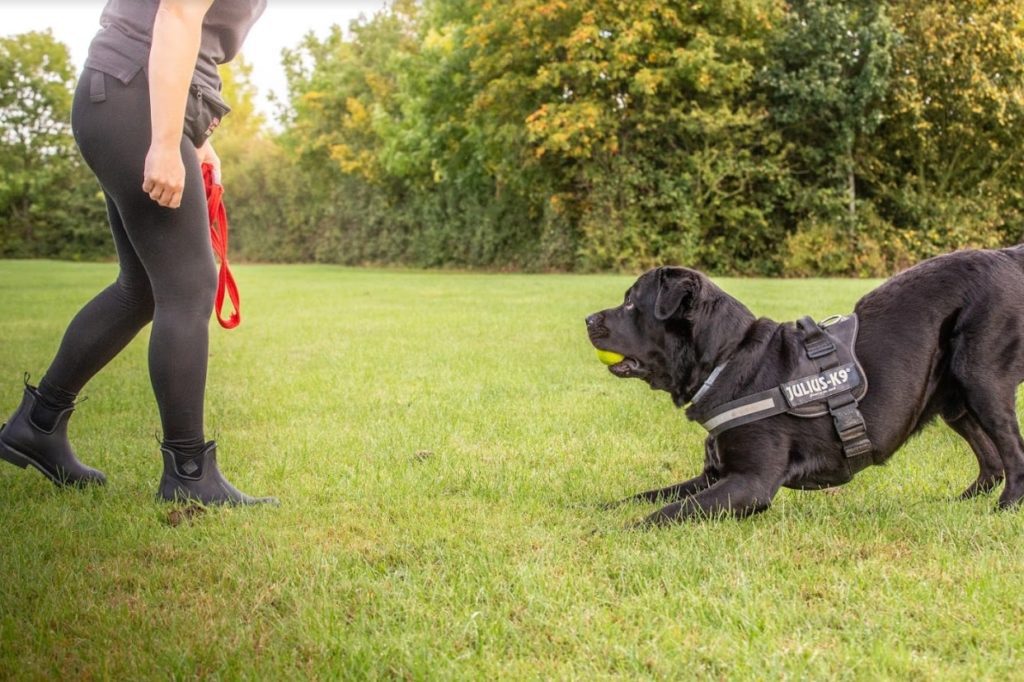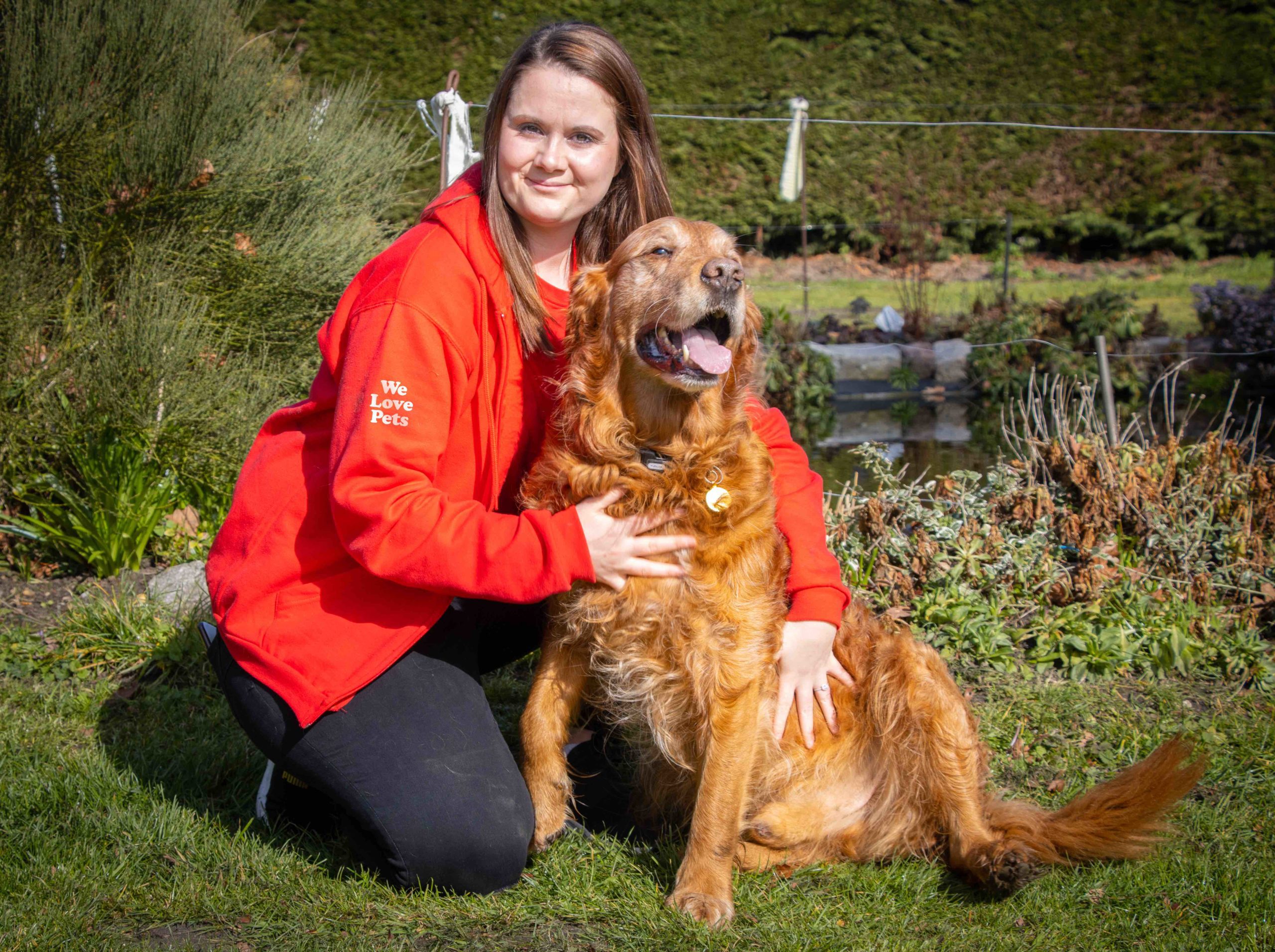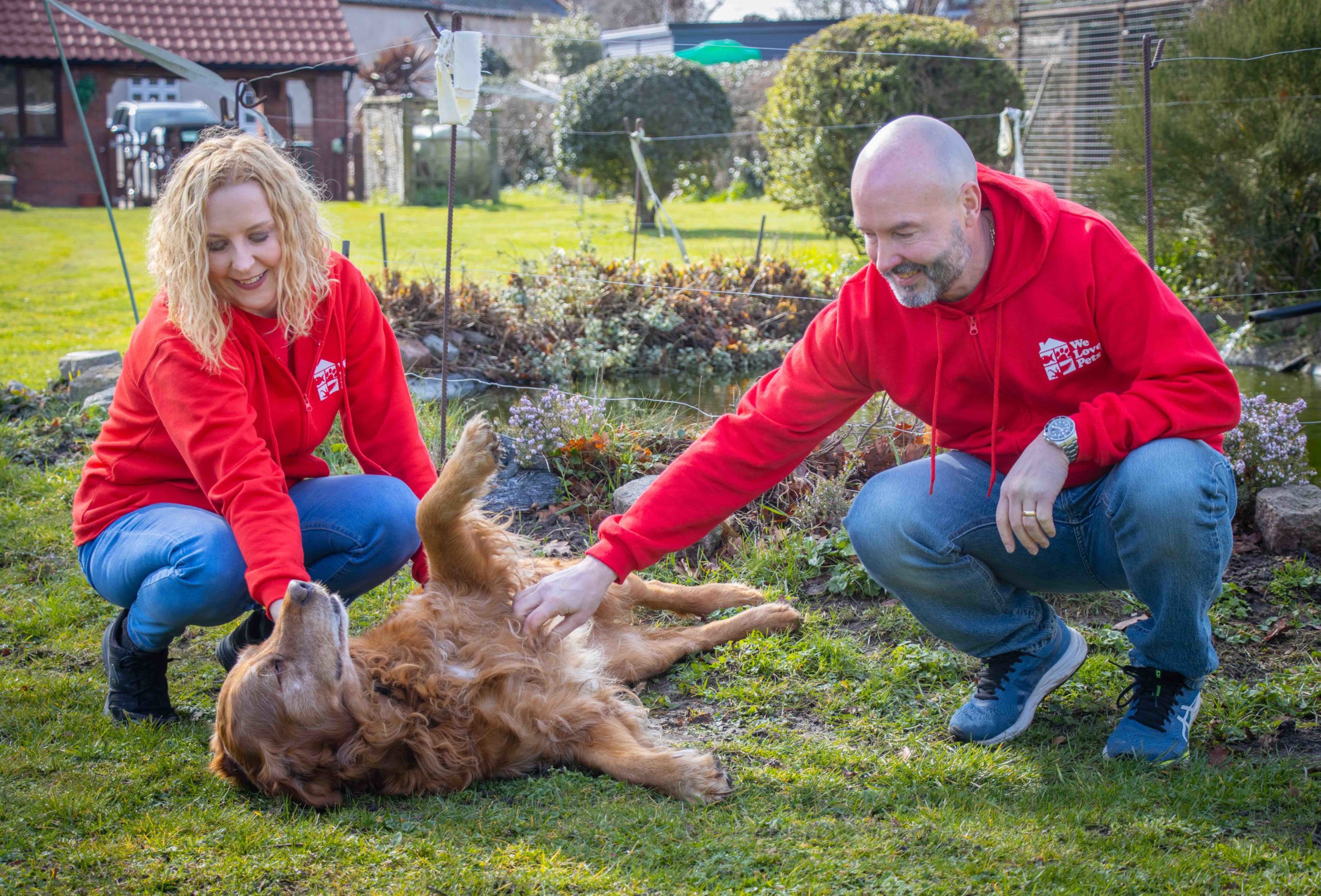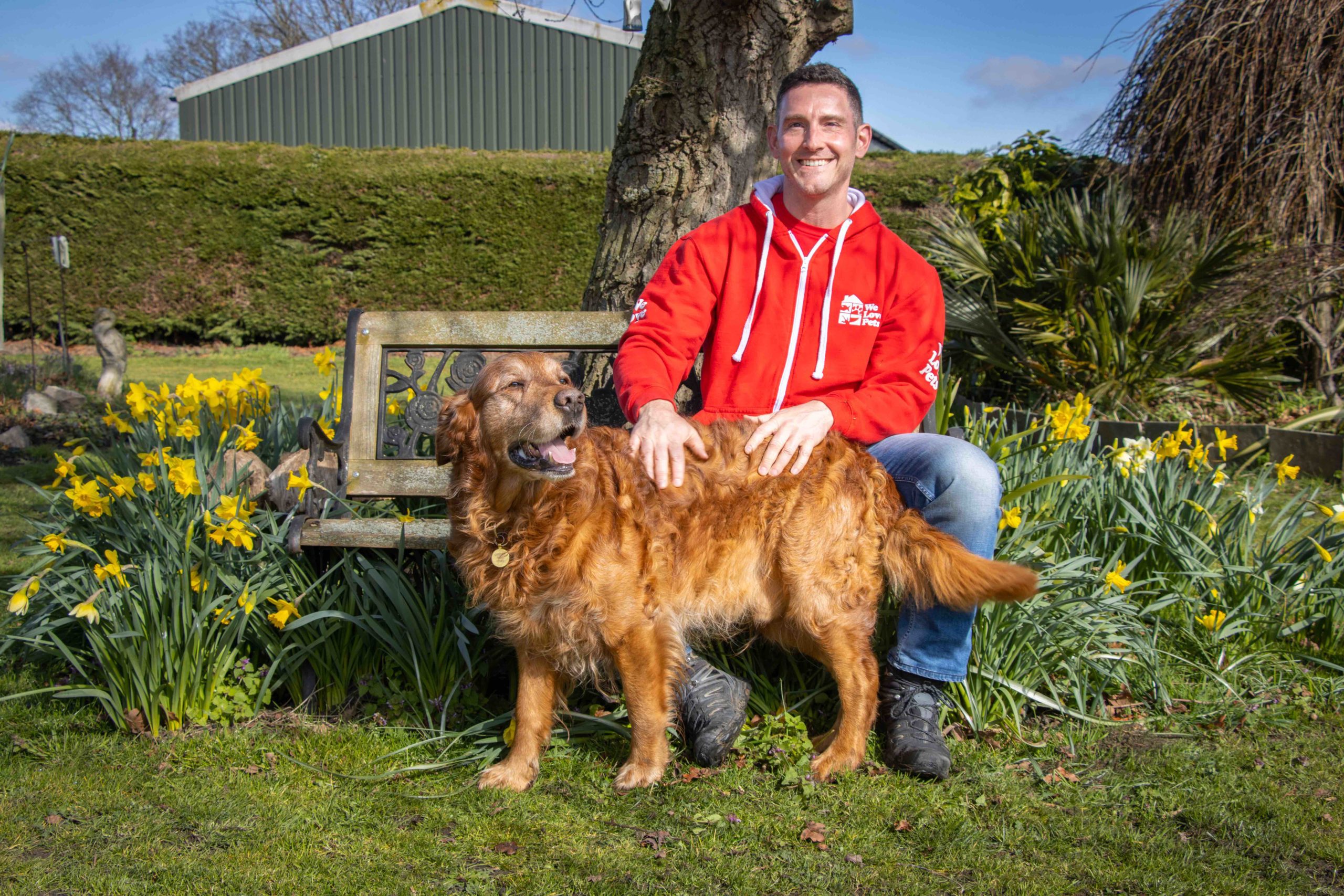So why do dogs bark? Barking is a natural way for dogs to express themselves, it’s part of their language but in some circumstances it can become excessive. This can be due to stress, the need for attention, or much like us humans, they are yelling to make themselves heard. So how can you tame excessive barking? Can it be done?
No matter what the cause, you can help your dog if you can find out what triggers the barking, then try to remove or minimise that trigger to help bring your dog’s stress levels and the associated barking back down. We’ve compiled some examples for each type of below. With all of them it is important to remain calm. How you address a specific issue will depend on your individual dog and the situation.
There are several different types of barking…
Excitement barking
“I’ve just heard Dad pull up in the drive, he’s home!”
“New people are here!”
This type of barking will involve a lot of energy and movement. It’s really important to stay calm as your stress can escalate your dog’s behaviour.
If your dog barks when you come home or visitors arrive, try to give them an alternative to barking, ask them to fetch you something so that they have a job to do. A lot of dogs find carrying objects around really soothing and as an added bonus it makes it very hard for them to bark!
If your dog barks when they see other dogs, it’s most likely to be excitement barking rather than because they are threatened or being aggressive. This is often because your dog either had so many amazing experiences when they were socialised that they want to keep repeating them, or they didn’t see many dogs growing up so everyone they see is amazing! Walking with other dogs in the same direction can really help with this, it allows your dog to get used to being in proximity to other dogs in a calm way, without head to head confrontation. Build things up gradually and remember to reward the quiet!
Warning barking
“Come quick, the Postman is trying to break in again!”
It’s natural for your dog to warn you about things it perceives as threatening, the best way for you to respond is to let your dog know you’ve heard him and you are going to deal with it. Place yourself in between your dog and whatever he’s barking at, then when he stops, which he will, say thank you and give him a thumbs up. Eventually you will be able to just give a thumbs up signal to let him know that you’ve got it under control.
Fear barking
“Help! That plastic bag is chasing me!”
“That noise is terrible, help!”
“They’ve left me! Are they ever coming home?”
Let’s deal with the first scenario. This usually occurs with objects dogs haven’t seen before or often, so let your dog observe it from a distance and reward them for being quiet. Gradually move closer, but make sure you don’t force your dog to join you if they don’t want to (this is called counter conditioning). Positioning yourself between your dog and the object will often make them feel more secure and you can even touch the object to help reassure them. Don’t be tempted to move it closer to your dog as we don’t want them to associate you with the scary thing. This needs to be a gradual process.
Second scenario – scary noises. This could be fireworks, roadworks and all manner of other sounds. The best method of treating this is desensitisation. You need to play a recording of the noise that makes your dog fearful at a very low level, gradually increasing it over several weeks so that he becomes desensitised to it and no longer feels the need to react when he hears it in the real world. Having other sources of sound on around the house like the radio can really help dogs that struggle with external noise.
Third scenario – this is essentially separation anxiety. It can be overcome, but will take a lot of time and patience.
Guard barking
“This is my bone and I do not share!”
“This is my human, don’t you come near him!”
Try to avoid getting into situations where your dog feels he needs to defend himself. Make sure there are always enough resources available if you have more than one dog. Learn to read your dog, his body signals will let you know early on if you need to intervene or change your approach before barking begins. If your dog is behaving in a defensive manner to another dog, try to walk in a curved pattern when approaching as this will reduce the feeling of threat because it is no longer head on. Planning and thinking ahead will really help you out in this situation. Again, letting dogs observe things that previously put them on guard from a distance and rewarding them for not barking will help reduce guarding behaviour.
Frustrated barking
“Dad come on I need a wee, it’s way more important than the football, please!”
This usually occurs when a dog becomes so desperate and frustrated over a long period of time that he starts barking to give himself an outlet for that frustration. The simplest solution for this type of frustration is to work out the cause and try to help your dog, does he need more frequent trips outside or is he struggling with boredom and needs more to do? Many of the causes for frustration barking can be remedied easily. You can also adapt your environment to help combat this, maybe put opaque plastic on windows to prevent frustration when a dog wants to reach something it can’t, or provide more enrichment indoors to reduce boredom.
Learned barking
“I barked, they looked at me. I’ll bark again. They gave me food, this is awesome!”
Owners can be their own worst enemy in this situation, it’s really easy to misinterpret our dogs and reward the wrong thing. We need to examine the dog’s behaviour, learn to recognise learning barking and make sure we don’t accidentally reward it. If we can recognise the triggers and train an alternative behaviour in place of the barking, then we break the pattern and reward the dog for something better, we can prevent learned barking.
Things to remember
- Punishment doesn’t work! It will either damage your relationship with your dog or be misinterpreted by them to reinforce the barking.
- Barking is self-rewarding for dogs so just ignoring it and hoping it goes away is unlikely to work.
- Rewarding dogs immediately after they have stopped barking will not work because dogs pick up really well on patterns, and will quickly learn to: bark, then stop barking to receive a reward and then repeat, repeat, repeat! Here comes another headache!
- Dogs learn much better if they are rewarded for actually doing something, doing nothing can be confusing so asking for an alternative behaviour is a much better option.
If you take the time to observe your dog and get to the bottom of their barking, then you have the power to help them and reduce the barking to a more acceptable level. Plan ahead, do your research and you can help your dog feel better and reduce the need to bark.




